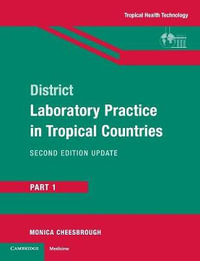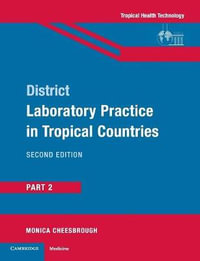The list of 68 contributors reads like a veritable Who's Who of international honeybee specialists. Although the authors discuss CCD in various contexts, the volume is much broader in scope and presents up-to-date information on the role of viruses, microbes, fungi, parasitic mites, other hive parasites, and various pesticides in hive health. The authors also consider interactions between various risk factors as the possible cause of current honeybee decline. This book will be of interest to beekeepers and bee researchers, but it holds little to attract the attention of a general reader. Institutions with active apiculture programs will own this volume; other libraries will find it difficult to justify the expense. Summing Up: Recommended. Graduate students, researchers/faculty, and professionals/practitioners.
-P. K. Lago, University of Mississippi, in CHOICE, May 2012
"Honey Bee Colony Health is a welcome addition to the treatment of honey bees as social organisms and their role in the wider field of pollination biology. It supplements and complements information found in two other recent ground breaking contributions: The Buzz about Bees by Jiirgen Tautz and Honeybee Democracy by Thomas Seeley. There seems little question that all these volumes represent a rich resource for the future study of honey bees by beekeepers and researchers alike."
-M. T. Sanford, Apis Enterprises, in Florida Entomologist, (95)1, March 2012
"...In a nutshell, [Honey Bee Colony Health] edited by two respected scientists, contains a series of chapters written by 68 scientists whose topics are largely within their field of speciality. Whilst many of the scientists who contribute to this work are from the US, others are from Belgium, France, Sweden, Switzerland, Austria, UK, Slovenia, South Africa, Canada, Brazil, Turkey and the Netherlands - showing that to tackle the enormous problem international collaboration is essential. ...
...Anyone wishing to be extremely knowledgeable about what is happening to bees and about the huge amount of research which is being carried out at an international level, will find this book invaluable. They will learn, too, that there are many areas of promising investigation which cannot be continued because of lack of funds which must be very frustrating for the scientists. ...
...I am not going to say that this book should be on every beekeeper's book shelf; that is the wrong place for it. It should be much nearer at hand and thoroughly studied. With beekeepers commonly accepting 30% losses, they need to know what is going on and what is being done to help them and their bees."
-John Phipps, The Beekeepers Quarterly, Number 107, March 2012, pp. 51-52
The list of 68 contributors reads like a veritable Who's Who of international honeybee specialists. Although the authors discuss CCD in various contexts, the volume is much broader in scope and presents up-to-date information on the role of viruses, microbes, fungi, parasitic mites, other hive parasites, and various pesticides in hive health. The authors also consider interactions between various risk factors as the possible cause of current honeybee decline. This book will be of interest to beekeepers and bee researchers, but it holds little to attract the attention of a general reader. Institutions with active apiculture programs will own this volume; other libraries will find it difficult to justify the expense. Summing Up: Recommended. Graduate students, researchers/faculty, and professionals/practitioners.
-P. K. Lago, University of Mississippi, in CHOICE, May 2012
"Honey Bee Colony Health is a welcome addition to the treatment of honey bees as social organisms and their role in the wider field of pollination biology. It supplements and complements information found in two other recent ground breaking contributions: The Buzz about Bees by Jiirgen Tautz and Honeybee Democracy by Thomas Seeley. There seems little question that all these volumes represent a rich resource for the future study of honey bees by beekeepers and researchers alike."
-M. T. Sanford, Apis Enterprises, in Florida Entomologist, (95)1, March 2012
"....In a nutshell, [Honey Bee Colony Health] edited by two respected scientists, contains a series of chapters written by 68 scientists whose topics are largely within their field of speciality. Whilst many of the scientists who contribute to this work are from the US, others are from Belgium, France, Sweden, Switzerland, Austria, UK, Slovenia, South Africa, Canada, Brazil, Turkey and the Netherlands - showing that to tackle the enormous problem international collaboration is essential. ...
....Anyone wishing to be extremely knowledgeable about what is happening to bees and about the huge amount of research which is being carried out at an international level, will find this book invaluable. They will learn, too, that there are many areas of promising investigation which cannot be continued because of lack of funds which must be very frustrating for the scientists. ...
....I am not going to say that this book should be on every beekeeper's book shelf; that is the wrong place for it. It should be much nearer at hand and thoroughly studied. With beekeepers commonly accepting 30% losses, they need to know what is going on and what is being done to help them and their bees."
-John Phipps, The Beekeepers Quarterly, Number 107, March 2012, pp. 51-52
























